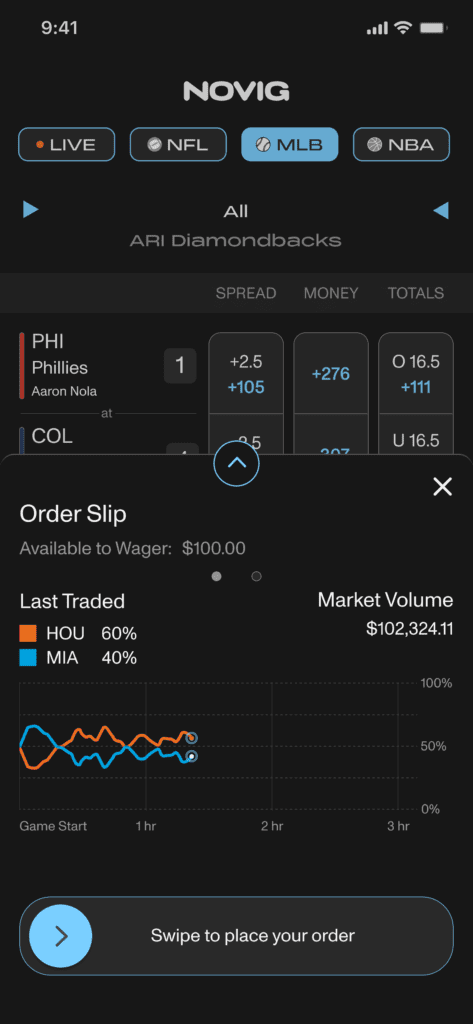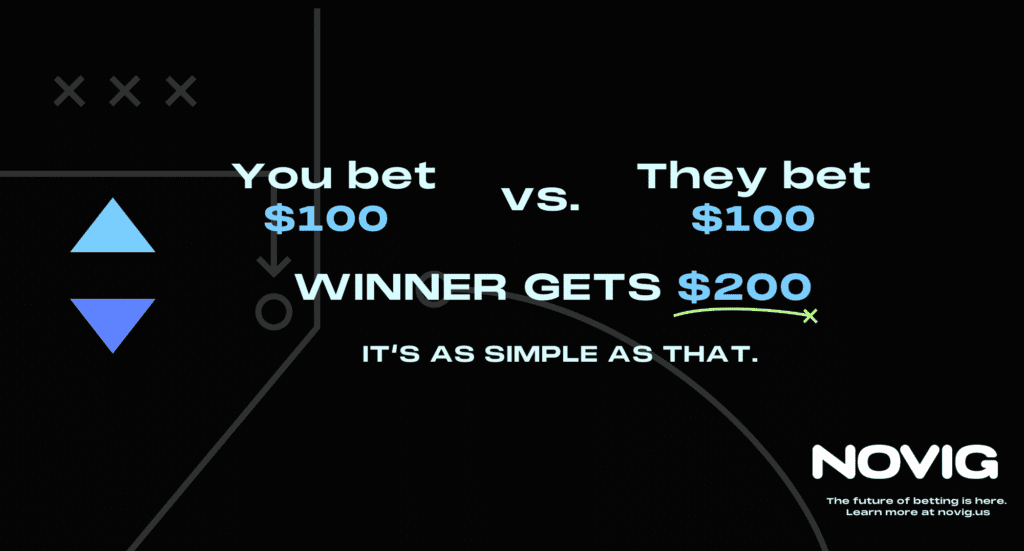Subscribe to our newsletter
We'll send you bets and resources to help you profit
Sports Betting Exchanges: A Necessary Addition to the Market

AP Photos
The legal sports betting landscape in the United States is young and always changing. There is now mobile betting in 28 of the 50 states, just five years after PASPA was repealed in 2018 allowing it to be legal.
In the first few years, dozens of sportsbooks popped up with lucrative sign-up bonuses and other promotions to try and capture a share of the market.
They all had various levels of success. Industry giants with a pre-existing base of Daily Fantasy Sports players like DraftKings and FanDuel have thrived, capturing the majority of the market. BetMGM and Caesars are in solid shape, but in recent months we’ve seen shutdowns from books like Fubo and Wynn in many states.
Here at OddsJam, our product works because of the wide diversity of sportsbooks and how they all set their lines independently. That creates some variability in the market, which is how our software finds lines with Positive Expected Value.
The more books in existence, the better our product is. The hypothetical consolidation of the market towards one dominated even more by solely DraftKings and FanDuel is not good for the sharp bettor that needs a variety of books to shop around for the best possible line and price.
Fortunately, the industry is trending towards exchanges becoming more prevalent. These exchanges hold sportsbooks accountable by offering innovative advantages such as limiting or eliminating the vig (also known as juice, for example how a standard bet is -110 odds risking $110 to win $100 instead of even odds).
Monopolies are never good for the consumer and sports betting is no different.

Exchanges such as Novig (seen above) are optimistic they can not only help the consumer directly by offering another platform to bet on, but also keep the sportsbooks in check from ripping off the average bettor.
For example, many books offer one-sided markets with completely skewed prices. A great example of this is anytime touchdown scorers in the NFL or home run props in MLB. When you go to a sportsbook, they typically don’t offer a player NOT to score a touchdown or hit a home run. This creates a dynamic where they can determine their odds with no consequences of being exposed by the opposite outcome.
On the other hand, with exchanges like Novig, customers can trade on the yes and no happening and create their own offers. If you think an offer is unfair, you can make your own and let the market decide.
As mentioned earlier, the primary way the sportsbooks make money is by charging -110 odds on wagers with a 50% probability of winning.
If 100 people are betting on an over/under and 50 of them place $110 to win $100 on the over and the other 50 place $110 to win $100 on the under, the books are taking in $11,000 of bettor’s stakes (100 x $110).
When 50 of them win, they return $210 ($110 stake and $100 winnings) for a total of $10,500. That’s a whopping $500 profit the sportsbook has made just from hosting these 100 bets, or $5 per person on average.
Exchanges want to change that.

If those same 100 people were betting on an exchange, they are betting directly against each other with just $100. When 50 of them win, they return $200 ($100 stake and $100 winnings, the same profit as on a sportsbook). For the 50 people that lose, they only are out $100 instead of $110.
Alternatively, if the bettor wants to stick with the same $110 risk as the sportsbook, the profit on an exchange is $110 rather than $100.
With the same exact consumers in these examples, the sportsbook takes home $500. The exchange takes home $0.
This reduction in vig leads to both more competitive and efficient markets. Books and exchanges are forced to more thoroughly evaluate their prices as trading margins are lower. For example, Novig’s platform is forced to offer competitive, efficient prices, or else it will trade at a loss.
Because of that necessary internal accountability, users will get tighter, more efficient, and most importantly fairer lines.
As exchanges grow, they will hold their counterparts in check. If more and more people leave sportsbooks to bet primarily on an exchange, it becomes more challenging for the books to offer predatory pricing as more reasonable and fair pricing becomes widespread.
Either more customer friendly exchanges will dominate the sharp market or sportsbooks will be forced to adjust, or ideally both.
In any of those scenarios, the consumer wins. At OddsJam, we’re all about helping the sports bettor profit and we don’t care if that’s through sportsbooks like DraftKings, DFS sites like Underdog Fantasy, or exchanges like Novig.
The more diverse platforms users have to bet on, the better, and exchanges are an exciting addition to the industry that will create a necessary accountability for the rest of the market.





